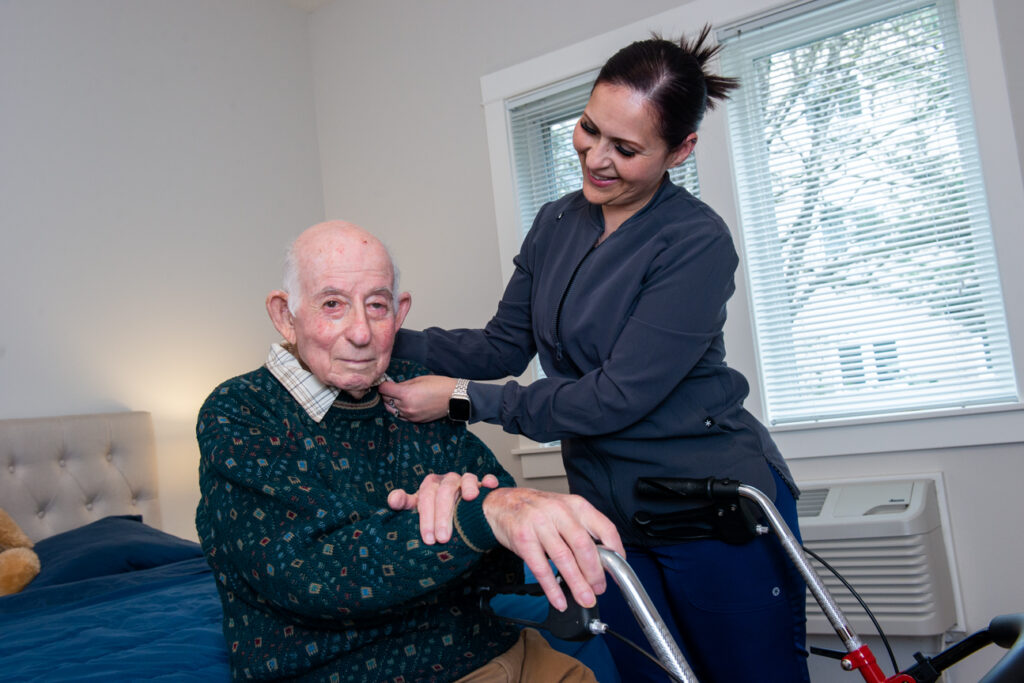By Sydney Clevenger
With the cost of living rising, particularly in healthcare, more seniors are choosing to age at home. As often, families are moving in together with the younger generations caring for their aging elders. And the upcoming influx of baby boomers into the retirement age demographic, is expected to keep these trends increasing for at least a decade to come.
The trend in elders at home means an uptick in care programs that offer families respite, said Cedar Sinai Park’s Director of Sinai In-Home Care, Heather Hess.
“Families are needing a break,” said Hess. “We have noticed an increase in family caregivers needing respite services ever since Covid when people were afraid to leave their homes and extended families began living together to keep one another safe.
“In-home care offers flexible services to give families a break for a few hours once a week, or longer, as many days as are needed,” said Hess. “It’s super easy to get started, and in-home services offer consistency of care, which is important to aging elders.”
Hess said a rested family caregiver is in a better state of mind to deal with the challenges of an aging loved one, particularly if a dementia-related disease is involved. Often, the caregiving family needs tips to support their loved one with dementia, she said.
“I would ask a group providing in-home care: What specific trainings do your caregivers have? Are they hospice trained? Do they have Parkinson’s and dementia knowledge? What about brain injuries? And, then I would find out the caregivers’ overall level of training, such as how many hours of training caregivers are offered upfront, and then the hands-on training offered on an ongoing basis through their employment.”
Hess noted that all Sinai In-Home caregivers are trained in various dementia care approaches, including the nationally-recognized Positive Approach to Care.
“So, families learn from our team, as well as get the break they need, which is nice,” said Hess.
In addition to asking about an in-home caregiving company’s background, skill set, and training in dementia care, Hess advises people looking for a reputable group to ensure the service is licensed in the state in which they live. She also suggests asking agencies about their employee turnover rate.
“If an agency has caregivers that have been there for five years or longer, that’s amazing,” said Hess. “A number like that tells you a provider is doing something right: the employees are happy, and the clients are happy.”
Most in-home care agencies offer menu-based services, which means families can pick and choose what care is needed, how often, and what times and days. Sinai In-Home Care is generally available to take clients within a 50-mile radius, but each agency is different, said Hess.
“These are all very important questions, and it’s okay to shop around,” said Hess. “A reputable agency will be willing to answer all of your questions and, if they are not, that is a red flag. With society soon heading into one of the biggest dementia booms from the baby boomers, with a projected peak date of 2030, trained in-home caregivers will be essential.”
For more information about Sinai In-Home Care services, please go to Sinai In-Home Care or call (503) 542-0088.
###



